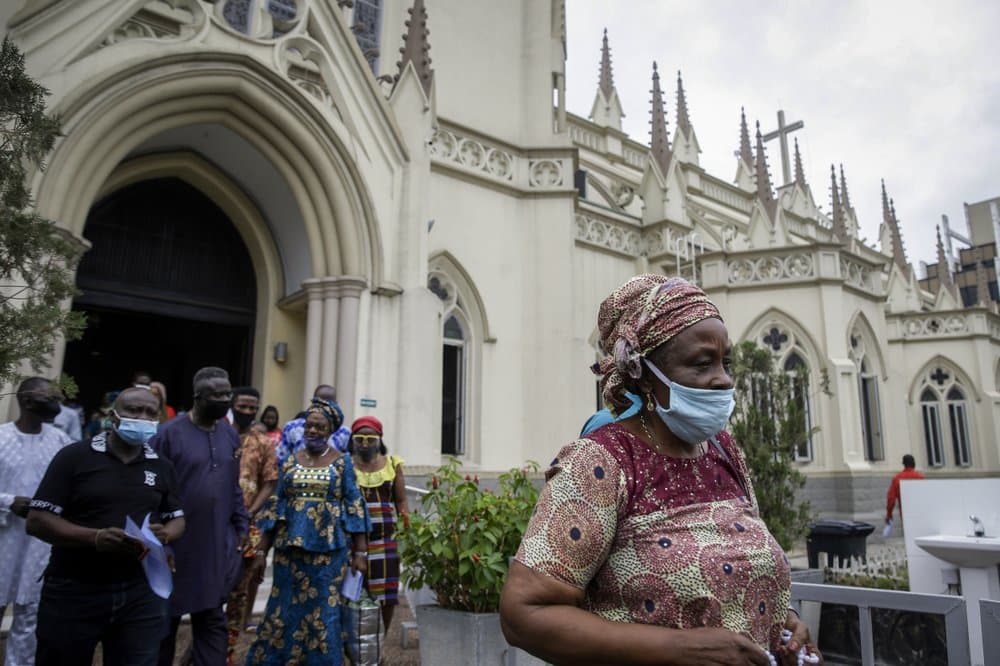YAOUNDÉ, Cameroon – Christianity won’t be driven from Nigeria by Boko Haram and Fulani militants, says one human rights advocate.
Christians make up about half the population of Nigeria, but have faced harsh persecution in recent years on multiple fronts, primarily from Islamic terrorist group Boko Haram and Muslim Fulani herdsman, who have attacked Christian villages in search for grazing territory for their cattle.
Most of these attacks happen along Nigeria’s “Middle Belt” – where the predominantly Muslim North meets the predominantly Christian South.
Local tribal conflicts have compounded the issue, making it dangerous not just for Christians, but for everyone.
In a recent report entitled: Nigeria: A Killing Field of Defenseless Christians, the International Society for Civil Liberties and Rule of Law (Intersociety) claim between 11,500 and 12,000 Christians have been killed in Nigeria since June 2015. And the first two months of 2020 saw 350 Christians killed in Nigeria.
RELATED: Kidnapped Nigerian priest set free and in ‘good health’
“There have been many attacks on Christians in northeastern Nigeria,” said Nathan Johnson the regional manager for International Christian Concern, an ecumenical, non-governmental and non-partisan Christian organization.
“From the beginning of the insurgency until about 2015, they were able to displace nearly all Christians in Borno State due to heavy attacks,” Johnson told Crux.
In more recent years, there have been several major attacks on Christians. These mainly look like the kidnappings of Christians, followed by execution videos. This includes the killing of 11 Christians on Christmas Eve in 2019, the murder of a seminarian named Ropvil Dalyop, as well as the kidnappings of the Chibok girls and Dapchi girls,” he added, referring to groups of hundreds of schoolgirls kidnapped by Boko Haram in 2014 and 2018.
Johnson said Boko Haram was tough to fight because “any indigenous guerrilla group is going to be extremely hard to defeat.”
“They are able to blend in with the population and can easily recruit new actors without raising suspicion. Their tactics allow them to conduct an attack and then quickly blend back into the population,” he explained.
He said the Nigerian central government needs to win over the people of Borno state to end the threat posed by Boko Haram, adding authorities need to “stop the madrasas from radicalizing and sending young boys to the terrorist group.”
RELATED: Nigerian bishops say ‘killings must stop’
“They must also do a better job of caring for the many orphans in Borno State who are preyed upon by the terrorists. Lastly, they must stop the abductions and thefts that help to fund the terror group,” he said.
However, Johnson said the resilience of Nigeria’s Christian community is stronger than terrorism.
“If Boko Haram is allowed to create a caliphate, they would kill all Christians whom they found,” Johnson told Crux.
“This does not indicate, however, an end to Christianity in Nigeria. The Gospel spreads quicker in areas of high persecution than anywhere else. No matter what this group does, the Gospel will continue to move forward,” he said.
RELATED: Nigerian priests in Indiana carry concern in hearts over homeland
“Christ can and will give the strength to hold on to the faith in dire situations. This is not something that I have personally experienced but is something that has been seen through many martyrs and examples of the faith throughout history. We see examples such as the apostles, who were nearly all killed in terrible ways, missionaries such as Eric Liddell and Jim Elliot and Nate Saint, and the many everyday Christians who die without turning from Christ. It is an amazing testament to the faithfulness of Christ to his children,” he continued.
Liddell, the Scots athlete made famous in the 1981 film “Chariots of Fire,” died in a Japanese internment camp in China in 1945, where had been serving as a missionary since 1925; Elliot and Saint were American missionaries killed in 1956 while trying to evangelize the Huaorani people of Ecuador.
Johnson noted that International Christian Concern is also seeking to help persecuted Christians across Africa.
“Currently, we are working to provide farms to victims of attacks in Nigeria, as well as schooling for displaced children and families in Nigeria, Kenya, Pakistan, and more. We also worked very hard to help secure the release of Miriam Ibrahim in Sudan, who was infamously sentenced to death for apostasy,” he said.













